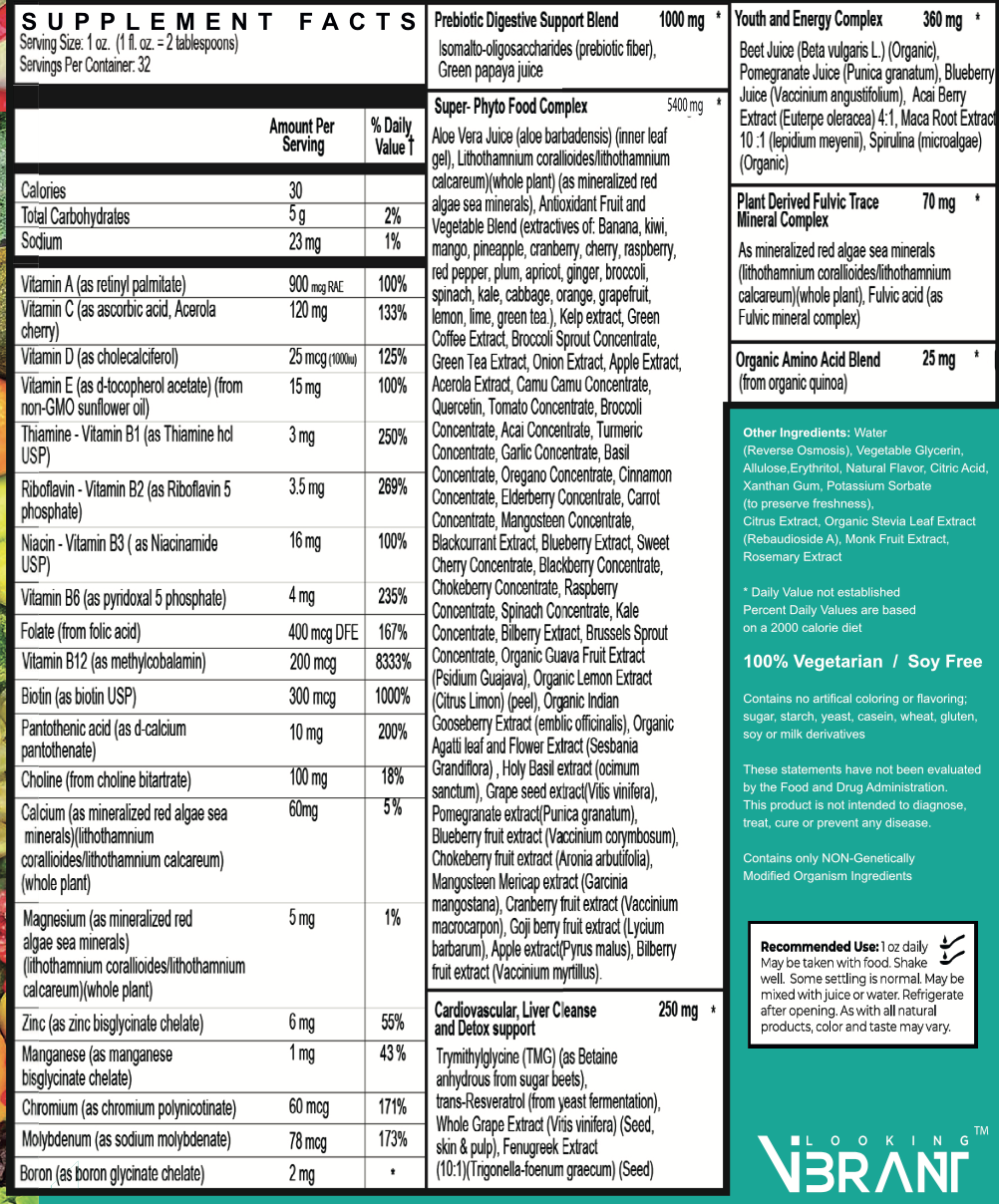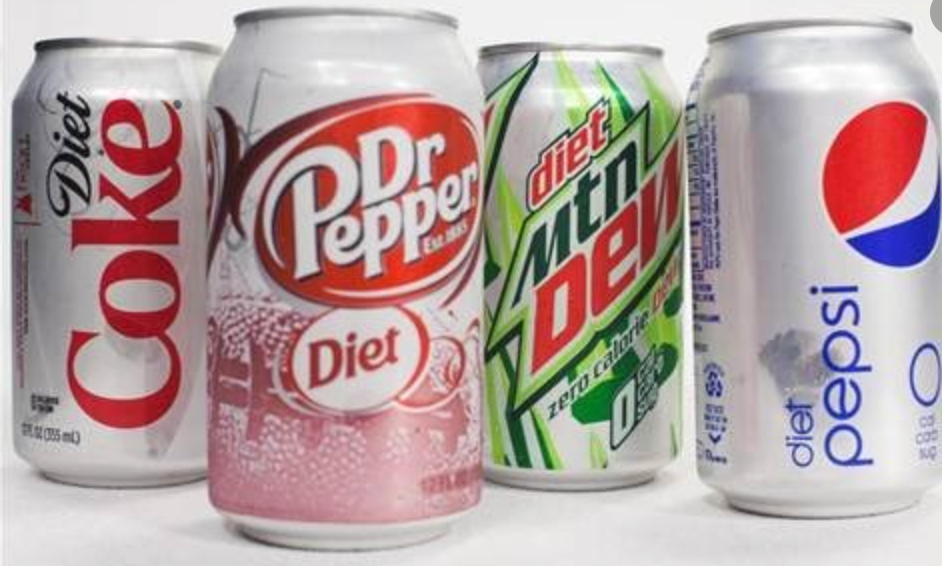Author: Dr. Véronique Desaulniers
It sound like a good idea: You would like to cut your sugar intake and lose some weight, so why not try diet soda? Unfortunately, this advice is followed by many people, often diabetics and those who struggle with obesity. The truth is that consuming diet soda, especially drinks that contain aspartame or the sucralose-derivative Splenda, can actually exacerbate both of these conditions, as well as cause a whole host of other health complications, including a higher risk of cancer. Can beverages containing aspartame and Splenda really lead to cancer?
Millions of consumers are misled by the Diet Soda Hype!
Plenty of Studies has proven the negative health effects of regularly consuming diet soda. And while per capita consumption of diet drinks has gone down slightly (650 eight-ounce servings in 2015, the lowest rate since 1985), make no mistake about it: the diet soda industry is still big business.
Report conducted by the U.S. Centers for Disease Control, on any given day, about 20% of the U.S. population aged 2 and older will be popping open a can of Diet Coke or similar drink. Many people think that they are doing something positive for their health by switching to diet soda. The facts point to just the OPPOSITE, however. Diet soda affects your gut, your brain, and your risk of cancer. And it actually promotes obesity!
Ingredients in Diet Soda Affect Gut Health
The connection between gut health and the immune system. Approximately 80% of your immune system cells are located along your digestive tract, so whatever affects your gut flora is also going to affect how well your immune system is able to fight off disease.
According to recent studies, the top two ingredients found in diet drinks ─ aspartame and Splenda (a chemically altered form of sucralose) ─ both have a negative impact on gut flora.
HOW ABOUT DRINKING ENSURE?! (Here's 56 seconds video clip with Neurosurgeon Dr. Russell Blaylock explaining how harmful Ensure is!)
“We identify NAS [non-caloric artificial sweeteners]-altered microbial metabolic pathways that are linked to host susceptibility to metabolic disease and demonstrate similar NAS-induced dysbiosis and glucose intolerance in healthy human subjects,” the authors of a 2014 study published in the journal Nature stated. “Collectively, our results link NAS consumption, dysbiosis and metabolic abnormalities, thereby calling for a reassessment of massive NAS usage.”
 Study conducted by York University in Toronto came to the same basic conclusion, specifically in regard to aspartame. In addition, a 2013 report issued by Washington University School of Medicine found that consuming Splenda created imbalances in gut flora that led to not only insulin resistance but instability in hormone levels as well.
Study conducted by York University in Toronto came to the same basic conclusion, specifically in regard to aspartame. In addition, a 2013 report issued by Washington University School of Medicine found that consuming Splenda created imbalances in gut flora that led to not only insulin resistance but instability in hormone levels as well.
Drinking Diet Soda Can Lead to Obesity
As strange as it may sound, the evidence is clear that drinking diet soda can actually lead to obesity. A 2015 study conducted at the University of Texas found that diet beverage drinkers ages 65 and older gained 2 ½ more inches of belly fat per decade than those who didn’t consume diet drinks.
The San Antonio Heart Study, completed in 2005 after gathering information for over two decades from diet soda drinkers of all ages, found that consuming these products led to significant weight gain. In fact, diet soda drinkers gained more weight than regular soda drinkers did. The researchers concluded that “…for each diet soft drink our participants drank per day, they were 65 percent more likely to become overweight during the next 7-8 years and 41 percent more likely to become obese.”
The reason for the connection is two-fold. Many studies, including the ones mentioned above, have connected diet soda’s negative effects on gut flora to metabolic imbalances such as diabetes which can lead to weight gain. Another reason is how diet drinks affect the brain. Diet beverages can alter a person’s appetite control mechanisms, causing increased food cravings as well as addictive behaviors towards the drink itself.
Studies have shown that individuals will tend to compensate for the “false sugar” their bodies receive when drinking diet soft drinks by eating high-sodium, high-fat and high sugar foods later in the day. In one study, rats were fed yogurt that had been sweetened with either saccharin, aspartame or regular sugar.
After 12 weeks, the rats that were fed the artificial sweeteners showed increased weight gain compared with the regular sugar group. The researchers speculated that the main reason was because those rats also consumed greater amounts of their regular rat chow.
REF: https://www.ncbi.nlm.nih.gov/pmc/articles/PMC2892765/
America’s obesity epidemic has gathered much media attention recently. A rise in the percent of the population who are obese coincides with an increase in the widespread use of non-caloric artificial sweeteners, such as aspartame (e.g., Diet Coke) and sucralose (e.g., Pepsi One), in food products (Figure 1). Both forward and reverse causalities have been proposed [1,2]. While people often choose “diet” or “light” products to lose weight, research studies suggest that artificial sweeteners may contribute to weight gain. In this mini-review, inspired by a discussion with Dr. Dana Small at Yale’s Neuroscience 2010 conference in April, I first examine the development of artificial sweeteners in a historic context. I then summarize the epidemiological and experimental evidence concerning their effects on weight. Finally, I attempt to explain those effects in light of the neurobiology of food reward.
Time line of artificial sweetener use and obesity trends in the United States. Blue line: changes in the percentage of the population who are obese (BMI >30) from 1961 to 2006. Source: National Health and Nutrition Examination Survey [57]. Orange line: changes in the percentage of the population who are regular artificial sweetener users from 1965 to 2004. Source: National Household Survey [2]. Purple line: changes in the number of new artificial sweetener containing food products introduced to the American market from 1999 to 2004. Source: Mintel Market Analysis [14]. Bars below the time axis indicates the type and availability of artificial sweeteners in the United States over time. Source: Kroger et al [9].
SWEET DEATH: How Sugar Is Making Us SICK! | Dr. Mark Hyman
Listen to one Minute video clip with Dr. Mark Hyman: "The way we grow our food costs 84% of our 3+ trillion+ healthcare expenditures for chronic diseases".
Don't worry, its all approved by the FDA☠️🤡
Is there an association between artificial sweeteners and cancer?
Ref: https://www.cancer.gov/about-cancer/causes-prevention/risk/diet/artificial-sweeteners-fact-sheet
Questions about artificial sweeteners and cancer arose when early studies showed that cyclamate in combination with saccharin caused bladder cancer in laboratory animals. However, results from subsequent carcinogenicity studies (studies that examine whether a substance can cause cancer) of these sweeteners have not provided clear evidence of an association with cancer in humans. Similarly, studies of other FDA-approved sweeteners have not demonstrated clear evidence of an association with cancer in humans.
Diet Soda Can Lead to the Creation of Neurotoxins ☠️
Besides how it affects appetite, aspartame in diet drinks can create gaseous substances in the gut which can bypass the blood-brain barrier and affect brain function. Several studies have linked diet soda consumption with severe headache and depression. This could be due to the fact that aspartame can convert into methanol and eventually formaldehyde, which can then travel to the brain and lead to neurological oxidation. Formaldehyde is a known carcinogen and has been linked to DNA damage and cancer.
Consuming Diet Beverages Can Increase Your Risk of Cancer
In addition to the carcinogenic effects of formaldehyde, the deleterious effect that diet soda has on gut immunity, and the fact that artificial sweeteners promote cancer-causing obesity, diet beverages can increase cancer risk in other ways.
Despite celebrity doctors’ and the mass media’s refusal to talk about this fact, several studies have made the connection between artificial sweeteners and cancer, including lymphoma, leukemia and liver cancer.
In February of this year, the Center for Science in the Public Interest downgraded Splenda from “Caution” to “Avoid” in its Chemical Cuisine glossary of food additives, citing a study conducted by the Ramazzini Oncology Institute in Italy which made a clear connection between Splenda and leukemia as well as other blood-related cancers. The aspartame-formaldehyde-breast cancer connection was made by researchers and integrative medicine advocates as early as 1999.
SWEET DEATH: How Sugar Is Making Us SICK! | Dr. Mark Hyman
Conclusion
Above information is just the tip of the iceberg when it comes to the overall health dangers of diet soda and food products that contain aspartame, Splenda and other artificial sweeteners. Unfortunately, according to Mercola.com, companies like Pepsi have slowly been reintroducing products that contain aspartame (Pepsi calls theirs “Diet Pepsi Classic Sweetener Blend”) in response to consumer reaction against Splenda.
Don’t have to be fooled, however. Know the facts and then simply SAY NO to any product that contains synthetic artificial sweeteners of any kind. In the meantime, why not try an alternative that will promote your healthy lifestyle, such as refreshing lemon water, natural teas, fresh-squeezed juices such as chilled watermelon, and, when you really crave soda, carbonated beverages that are lightly sweetened with stevia?
And then, the next time you are tempted to reach for that diet soda, ask yourself: Is it really worth the risk?!
Here's what they don't want you to know and you should be reaching for instead that can help you fight and lower your risks of many diseases including cancer!
William W. Li, MD is a world-renowned physician, scientist, and author of eat to beat disease explains (in 18 seconds) the immense health benefits especially for women when using probiotics.
William W. Li, MD: How essential to have good probiotics in your daily diet?
Scientist & a Researcher Dr. William Li Says: "By taking extra Omega3 (two or more a week) you can increase your longevity by extending your life by 4.7 years"👍
Dr. Daniel Amen explains in 45 seconds: Why is it essential to add OMGEA3 daily supplement and Multivitamins for your brain health?
What activates our health defenses? (Couple of minutes with Dr. William Li)
Lookingvibrant Personal Health Coach Dr. Khurram Pervez daily supplements recommendation.
1-MULTIVITAMINS (45-DAYS SUPPLY. LIQUID-VEGETARIAN)
It took us more than 11 months of R&D to develop this breakthrough multivitamin formula based on Dr. William Li research containing over 75% of the nutrients recommended in his book, “Eat to beat disease”.
Non-GMO, 100% Vegetarian, Gluten, and Soy free packed with more than 200 nutrients to fuel your body with essential daily nutrients that our modern daily diet lacks!

2-Vitamin B12 Nano Drops (All natural active methylcobalamin imported from Austria)
https://lookingvibrant.com/products/vitamin-b12-nano-pure-methylcobalamin-2500mcg
3-Raw Liposomal C + Bioflavonoids (Capsule)
https://lookingvibrant.com/products/vitamin-c-lipsomal-x120
4-Probiotic 40 Billion
5-Extra Virgin Norwegian Salmon Oil - 60 servings.
https://lookingvibrant.com/products/extra-virgin-100-norwegian-salmon-oil



